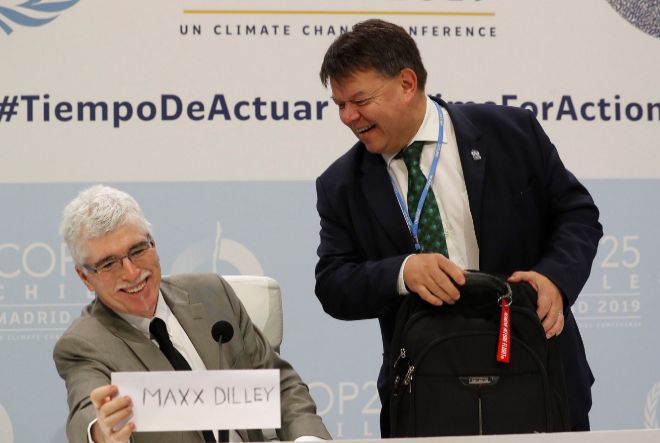- COP25.All the news of the Climate Summit
- Cruise in catamaran. Great expectation before the arrival of Greta Thunberg in Lisbon
- Health: Temperature rises due to climate change shorten human gestation
Heat records, unprecedented sea level rises and serious losses in the planet's ice mass. The decade that is about to end has been disastrous from the meteorological point of view throughout the planet, with increasingly intense and frequent extreme phenomena. This was assured this morning by Petteri Taalas, general secretary of the World Meteorological Organization (WMO), during the presentation of his organization's annual report.
The work, which links the changes registered on the planet with "greenhouse gas emissions resulting from human activity", has not been able to be presented in a more relevant forum: the Madrid Climate Summit in which almost 200 countries they negotiate how to reduce these emissions to limit the rise in temperatures to 1.5ºC compared to that of the pre-industrial era.
Almost certainly, the report says, the average temperatures of the 2015-2019 period and of the entire decade (2010-2019), will be the highest since records are available. When 2019 ends, it will be known if it has been the second or third hottest year. Specifically, the average global temperature from January to October 2019 was 1.1ºC above pre-industrial levels.
The 2019 report, called the 'Declaration on the state of the global climate', will be one of those that serve to advise the countries participating in the COP25 negotiations.
" We are not close to achieving the objective of the Paris Agreement, " Taalas said, adding that, if the course is not changed, the temperature increase will be more than 3 ° C at the end of the century compared to the industrial era, that is, twice the objective set by the scientific community to avoid the most serious effects of climate change.
These include the increase, both in frequency and intensity, of extreme phenomena. According to Taalas, heat waves and floods that used to occur "once every one hundred years" are becoming more frequent.
Throughout this year, destructive tropical cyclones have hit areas of Japan and Mozambique while forest fires affected countries like the Arctic and Australia.
Among the main consequences of climate change that are already felt, Taalas has also highlighted the most irregular rain patterns. An aspect that endangers crops and which, coupled with the increase in population, will have consequences for the food security of countries.
Sea level rise
The report also includes an acceleration of the rise in sea level due to the melting of the ice sheets of Greenland and Antarctica, the largest icy areas of our planet. These changes in the sea level of the globe are followed thanks to satellite observations since 1993.
With regard to the acidification of the ocean - due to the increase in greenhouse gases - it has increased by 26% since the beginning of the industrial era, according to the WMO report.
According to the criteria of The Trust Project
Know more- Science and Health
- Climate change
- Environment
- science
- Climate Summit
ScienceThe Climate Summit, live | Felipe VI: "There is still time. We cannot, we must not fail"
CLIMATE CRISIS Glossary to avoid getting lost between broadcasts and acronyms of the Madrid Climate Summit
Climate crisis What can you do for your planet?

